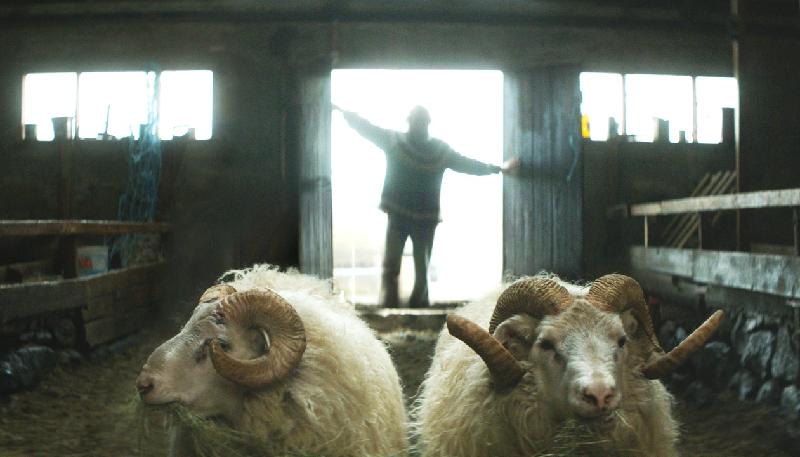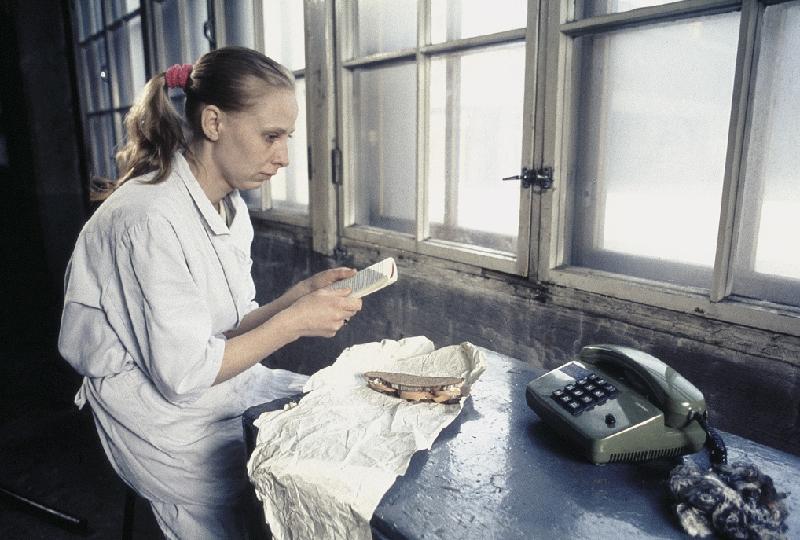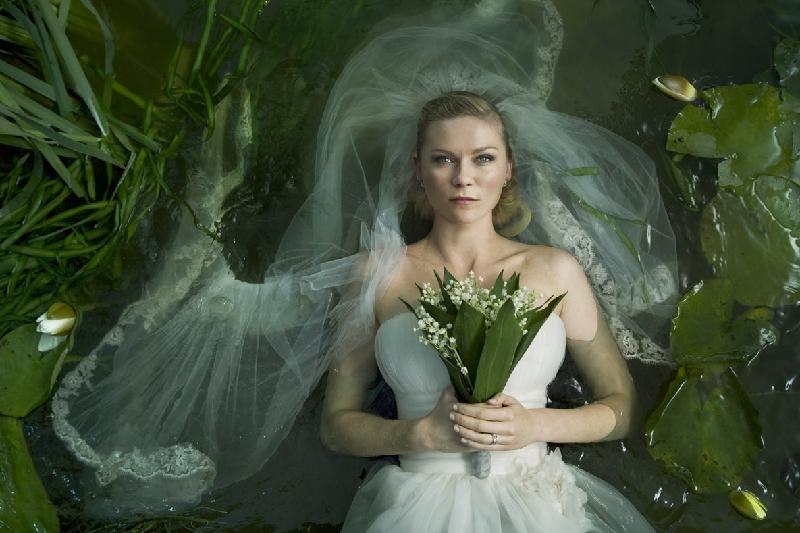Film Programmes Office to showcase the art of Nordic cinema (with photos)
*************************************************************************
Nordic people try their hardest to adapt to the extreme climate for survival and so do the characters in films. "Laila" (1929) gives a true account of the life of the Norwegian indigenous Sami reindeer traders and the breathtaking arctic scenery. Originally trained as a cinematographer, director George Schnéevoigt was capable of making exquisite black-and-white photography despite the limitations of shooting outdoors in an extreme environment. Arne Sucksdorff's "The Great Adventure" (1953), combining documentary and drama, tells of the struggles of men and animals for survival and rearing future generations while showcasing both the beauty and brutality of nature. The film won the International Prize at the Cannes Film Festival 1954. Grímur Hákonarson's "Rams" (2015) features two sheep farmer brothers in the Icelandic countryside dealing with adversities stemming from scrapie. Though being short on dialogue, the film touches the audience with audio and visuals, and it won the Un Certain Regard Prize at the Cannes Film Festival 2015.
Numerous Nordic filmmakers have attempted to examine man's relationship with God and ponder about the meaning of life in their works. Considered a masterpiece of silent film, "The Phantom Carriage" (1921), directed by pioneering Swedish director Victor Sjöström, tells of how the last man to die before midnight is doomed to drive death's carriage and collect the souls of the dead for the coming year. The special effects and cinematography in the film successfully create a terrifying atmosphere and arouse moral reflection. Carl Theodor Dreyer's "Day of Wrath" (1943) satirises the Nazis' brutal occupation of Denmark through the portrayal of medieval witch hunts. Given Dreyer's meticulous mastery of film techniques and composition, his simple but powerful storytelling leaves a deep and chilling message about the uncertainty of human nature and suffering in the midst of chaos. The film was named among the Top Ten Films of the National Board of Review of the US in 1948. The final film of Andrei Tarkovsky, "The Sacrifice" (1986) highlights the reactions towards death among a scholar who lives on an isolated island, his family and friends amid the advent of nuclear war. Putting aside dramatic end-of-the-days scenes, Tarkovsky expresses imminent death and inner fear through a chain of philosophical dialogues through which he suggests the ultimate meaning of life. The film won multiple awards at the Cannes Film Festival 1986 including the Grand Prize of the Jury, Best Artistic Contribution and the FIPRESCI Prize.
Swedish films attract worldwide attention for their sexually liberal content which demonstrates the yearning for freedom of the Nordic people and their pursuit of democracy and sexual equality. Gustaf Molander's "Intermezzo" (1936) is an ingenious combination of music, drama and film which features a married violinist falling in love with his daughter's young piano teacher. The duo become partners in life and on the stage as they tour around the world. Female lead Ingrid Bergman's outstanding beauty and male lead Gösta Ekman's enticing charm as well as their spectacular performances find full expression in the film. Directed by Swedish film master Ingmar Bergman, "Summer with Monika" (1953) follows a young couple who decide to spend their summer on an island. However, they have to face cruel reality once the summer ends. Bergman's work not only depicts a summer extravaganza and open sexuality, but also reflects the responsibility that the couple need to bear in the real world. Vilgot Sjöman's "I am Curious (Yellow)" (1967) centres on the curiosity and exploration on politics and sex of young Lena in a revolutionary manner in terms of the form and content. Showing explicit sexual scenes and real-life interviews with Martin Luther King and Swedish senior government officials, the film created a great thrill during its initial release and the lead actress won Best Actress in a Leading Role at the Guldbagge Awards 1968.
Nordic noir has been seen as a reflection of abnormality and horror underneath the systematic Nordic way of life. Erik Skjoldbjærg's "Insomnia" (1997) follows an inspector who suffers from a mental disorder due to the Nordic summer's midnight sun and kills his partner accidentally when investigating a murder case. The film is filled with thrilling action scenes as well as in-depth psychological depictions of sin and punishment. In "Jar City" (2006), Baltasar Kormákur reveals the risks of high-end scientific research and the tragedies caused by humans' quest for overriding nature. The film won Best Film, Director of the Year and Actor or Actress of the Year at the Edda Awards of Iceland in 2006. Niels Arden Oplev's "The Girl with the Dragon Tattoo" (2009) tells of the perseverance for truth of a tattooed female hacker despite exploitation by a bigwig. This complex and twist-filled work is a reflection of the society and a critique on humanity, and it won Best Film Not in the English Language at the BAFTA Awards 2011.
Nordic filmmakers also show their questioning on morality in their stories. Manifesting Aki Kaurismäki's signature style, "The Match Factory Girl" (1990) is part of the director's "Proletariat Trilogy" in which the characters are miserable, depressed and helpless, surrounded by a ruthless environment. In Thomas Vinterberg's "The Celebration" (1998), dark family secrets are revealed at a family gathering, telling a story that is ridiculous but real. The film won the Jury Prize at the Cannes Film Festival 1998 and the Audience Award at the Rotterdam International Film Festival 1999. In "Melancholia" (2011), Lars von Trier depicts a series of undesirable incidents resulting from a luxurious wedding through which he uncovers the hypocrisy, aggressiveness, vulnerability and self-centeredness that can lie behind one's glamorous look. The lead actress of the film won Best Actress at the Cannes Film Festival 2011.
"The Great Adventure", "The Sacrifice", "Intermezzo", "Summer with Monika", "I am Curious (Yellow)" and "The Girl with the Dragon Tattoo" are in Swedish; "Rams" and "Jar City" are in Icelandic; "Day of Wrath" is in Danish; "Insomnia" is in Norwegian and Swedish; "The Match Factory Girl" is in Finnish; "The Celebration" is in Danish, German and English; and "Melancholia" is in English. "The Great Adventure", "Rams", "Day of Wrath", "Intermezzo", "Summer with Monika", "Jar City", "The Girl with the Dragon Tattoo" and "The Match Factory Girl" have English subtitles; "The Sacrifice", "I am Curious (Yellow)", "Insomnia" and "The Celebration" have Chinese and English subtitles; and "Melancholia" has Chinese subtitles. "Laila" is silent with a score and English intertitles. "The Phantom Carriage" is silent with live music accompaniment performed by organist Gary Tong and English intertitles. As "I am Curious (Yellow)", "The Girl with the Dragon Tattoo" and "The Celebration" are classified as Category III, so only persons aged 18 and above will be admitted.
In addition, eight seminars themed on Nordic art and culture will be held on September 26; October 5, 12, 19 and 20; and November 1, 3 and 9 at the Academy of Film of the Hong Kong Baptist University, Cosmos Books Exhibition Hall, the Commercial Press Tsim Sha Tsui Book Centre, the Lecture Hall of the Hong Kong Space Museum and the Cinema of the HKFA. Programme curators Law Kar and Dr Donna Ong, arts critics Matthew Cheng and Shum Long-tin, designer Dylan Kwok and film critics and researchers Joyce Yang, Fung Ka-ming and Lau Yam have been invited to be the guest speakers for the seminars. They will be conducted in English and Cantonese and with free admission.
Tickets priced at $60 are now available at URBTIX (www.urbtix.hk). For credit card telephone bookings, please call 2111 5999. For programme enquiries, please call 2734 2900 or visit www.lcsd.gov.hk/fp/en_US/web/fpo/programmes/nordicfilm2019/index.html.
Ends/Saturday, September 7, 2019
Issued at HKT 11:00
Issued at HKT 11:00
NNNN







